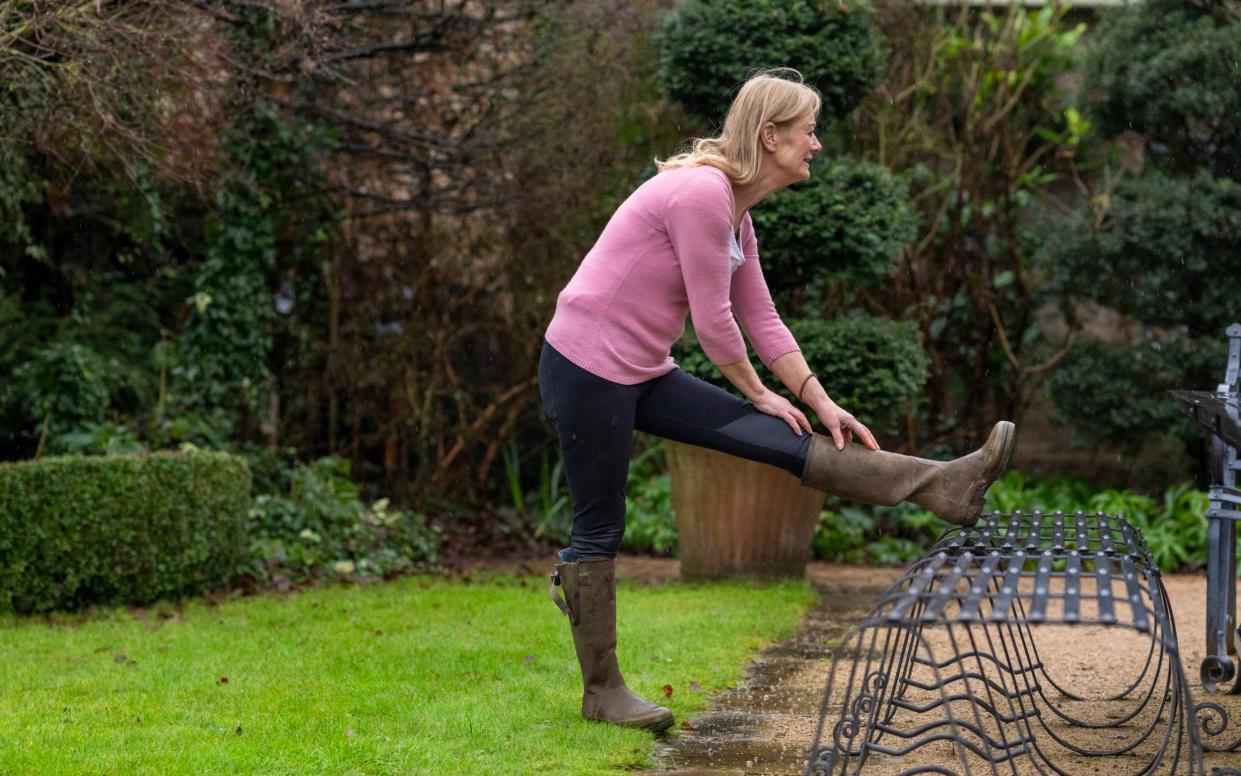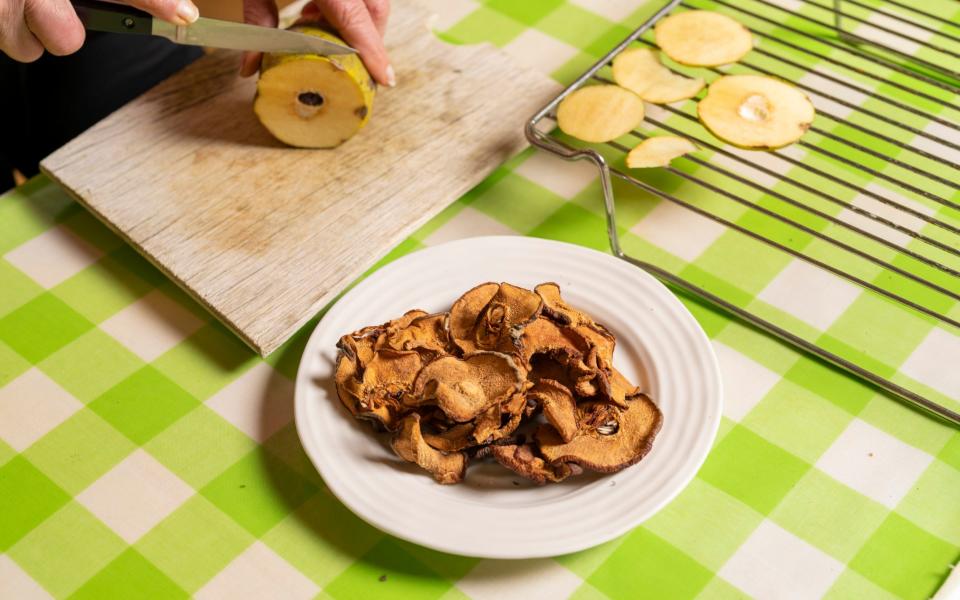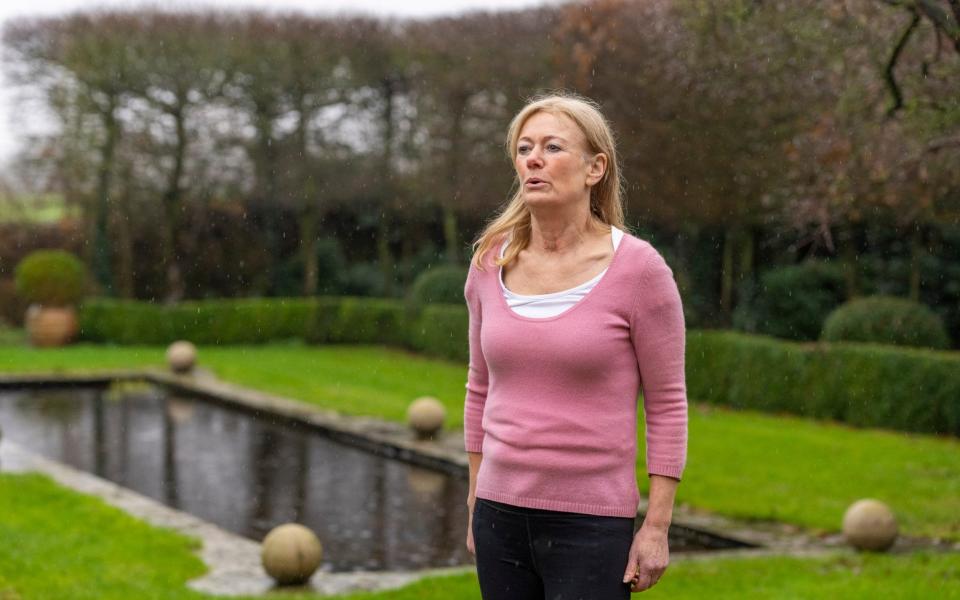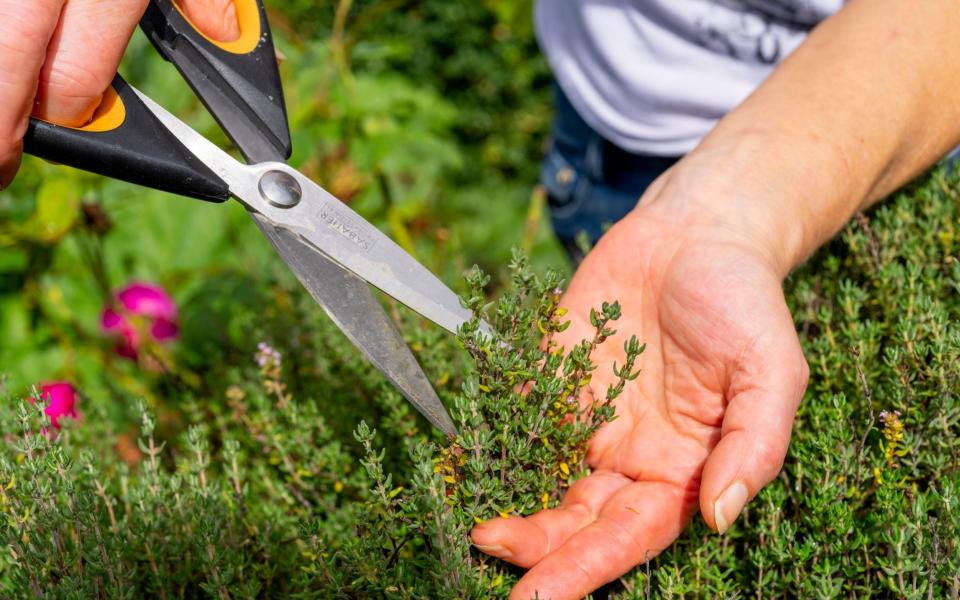My top tips for getting gardening fit for 2023 – in your 60s and beyond

I love February. I spend hours barrowing organic matter onto all my veg and borders. I've been extravagant this year and have just spent £250 on 20 tons of digestate which will be tipped in a huge heap. Three days later I will have moved the bulk of it.
After a long day shovelling, pushing and heaving, I dive into my newfound friend. It’s a sauna dome. The far infrared heat zaps my body for 20 minutes, raising my core body temperature by a degree or two and boosting my circulation. The research on the health benefits of saunas (by East Finland University over 20 years) is extremely compelling: apparently they can reduce heart problems, dementia, strokes, depression and more. For me, so far, I have noticed a massive reduction in stiffness, I feel more alert, and I have far better circulation.
Read about this and my key tips for getting yourself gardening fit for 2023 below. Your garden needs you!
Use a sauna, or a sauna blanket or dome
As I have just had my 67th birthday, and seen some of my friends aged between 50 and 70 succumb to “Sniper’s Alley” (the age where you are most likely to get unexpected health issues), I am keener than ever to keep fit and engage with that “raring to go” quality of youth. I’ve always hated the stuffy atmosphere in a sauna, but a client of mine, Spurs and England footballer Eric Dier, is evangelistic about them. For him – both a great sportsman and a keen gardener – saunas are essential for remedial purposes, especially muscle recovery.
Saunas also improve your “health span” (the length of time a person is healthy, not just alive) and I have recently discovered that sauna domes and sauna blankets also give benefits from regular use. A sauna blanket is essentially a heated sleeping bag, while a sauna dome is a mini tunnel, and both are heated with far infrared (FIR) rays, which penetrate your skin and elevate your body temperature via the blood in your fine capillaries. They are a joy to get into, especially if you have been gardening in cold, icy conditions.

After two weeks of using my sauna blanket I noticed a marked decrease in stiffness, which is highly satisfying for a gardener as it allows you to get into many useful positions! My circulation, always previously highly sluggish – so much so my GP prescribed heated gloves, as he was concerned I would get gangrene due to working outside in the cold – has improved dramatically. Even my varicose veins are shrinking. My skin is definitely looking plumper too – presumably from being better fed due to my increased circulation. Like a sauna, sauna bags and domes have a detoxifying effect, and they reduce fatigue and aid muscle recovery after exertion or heavy gardening.
Sauna blankets and sauna domes are relatively new, so they have not had the long-term research carried out on them that conventional saunas have (for example, Dr Jari Laukkanen from the University of Eastern Finland has comprehensively researched the effects of saunas on health and found that regular use reduced risk [in middle-aged men] of sudden cardiac death, Alzheimer’s and dementia, acute respiratory illnesses, low-level inflammation and strokes).
They are not cheap, from £380 for a sauna blanket (heathealer.com) or £669 for a Firzone dome (firzone.co.uk), but they are more affordable than a conventional sauna, which would cost several thousand pounds, and they cost far less to run. In my experience, the effects have been highly positive.
Crank up your gut biome
Much has been researched about this topic, and after my extensive antibiotic treatment for Lyme disease (three months of injections) I must have had a depressingly poor gut biome. I now nurture it with kefir (a fermented milk drink), raw cider vinegar and an extremely varied and wide diet, much of which is garden-grown and packed full of different fresh herbs. I did notice a big increase in wellbeing after using Symprove (symprove.com). This is a probiotic and there is lots of research evidence to show that it improves your microbiome. It is expensive though (from £39.99 a month), so I now take it intermittently and pay more attention to widening my diet.
There are a range of foods that you can grow that are prebiotics, which aid the health of your gut biome. Jerusalem artichokes are one, easy to grow and fabulous roasted, grated in salads and in soups. Quince (Cydonia oblonga) is also good for the gut biome.

We had a bumper crop this year which I sliced thinly, dried in a very low oven overnight and then shrink-wrapped. It is quite delicious eaten like this, as it becomes significantly sweeter on drying. I can easily consume two quince a day. Quince has hugely beneficial properties: it is, according to published scientific papers, a powerful antimicrobial and antioxidant, and it is also anti-Helicobacter pylori – a bacteria that causes infections and can cause stomach ulcers and stomach cancers.
We also quickly realised it is a powerful aphrodisiac! When I checked this on Google Scholar, I learnt that “after administration of the quince extract, mounting frequency and the mating performance of rats increased highly significantly. The extract also influenced the behaviour of treated animals in comparison to non-treated rats in a remarkable manner, making them more attracted to females.” Enough said!
And… stretch
Stretching daily, when muscles are warm, just keeps you so much more supple and less prone to injury. Few gardeners bother with this, but you must! We often do not realise that three hours’ gardening – maybe an hour each of weeding, mowing the lawn and pruning – is equivalent to a full-on hour in the gym in terms of calorie consumption. Gardening is more physical than you think, so spend time stretching the body, including your hamstrings, the hips and the quadriceps after every session.
Develop your core muscles
So many back injuries are caused by poor core muscle use. When I visit Horatio’s Garden at the Midland Centre for Spinal Injuries in Oswestry and chat to people with severe injuries, I am always shocked at how many occur by way of seemingly trivial accidents, such as slipping off a kerb or tripping over awkwardly. If you are overweight, with poor core muscle tone, you are more likely to have accidents like this.
Similarly, when carrying out many gardening jobs such as lifting heavy sacks or plant pots, climbing ladders or bending down, it is all the more important to engage your core to support your spine. My favourite exercise for this is with the foam roller – see my YouTube video “How Not to Get Back Pain From Gardening”.
Exercise your vagus nerve
Life in the 21st century can be stressful. While a certain amount of stress is healthy, it is useful to learn how to manage it. As we get older, our vagus nerve, which controls our parasympathetic nervous system (PNS), stops functioning as effectively. The PNS is important as it calms us down, as opposed to the sympathetic nervous system (SNS), which is the force behind the fight-or-flight response to our adrenaline kicking in when something shocks us.

Keep your vagus nerve well-tuned, like a muscle, by taking deep slow breaths, around six per minute, filling your diaphragm on the intake and pushing air out forcefully on the out breath. You can do it daily while out enjoying your garden. Just five minutes of this a day can help to decrease your heart rate and relax your muscles (see my YouTube video “My Top 6 Tips on How to Beat Inflammation”).
Get a good night’s sleep
We all feel better after a great night’s sleep. Many of us get overactive bladders as we age, but a study by Japanese scientists has shown that 10g of pumpkin seed oil taken daily significantly reduced the effects of night disturbance due to overactive bladders. Limiting your use of phones and tablets helps to improve sleep too, as these devices increase your alertness due to the light they emit. Put them to one side for at least an hour before bedtime so you can spring out of bed in the morning refreshed and alert.
Grow herbs
Herbs are a brilliant way to widen your diet, consume antioxidants and titillate your palette. A prime example is thyme. I grow several square metres of this (which is easy from seed); I use a few sprigs in hot water as a drink, and add it liberally to homemade burgers, soups, salads and stews. In clinical trials it has been shown to reduce inflammation and in lab tests it is shown to have antibacterial and antifungal activity, as well as helping to clear away mucus. I am never without multiple pots of basil on the window sill – we use massive amounts in pesto, and apparently it strengthens the immune system, alleviates stress and enhances memory.

For teas, my favourites are Aloysia citrodora (lemon verbena) and Aloysia polystachya, supposedly a relaxant and antidepressant: both are delicious. I regularly put sprigs of fresh lavender in my pockets (for sniffing) to help my butterflies before recording BBC Radio 4’s Gardeners’ Question Time, and it’s also considered to promote sleep. Mint, rosemary, bay, wild garlic, fennel, sage and many more are easy to grow and well worth consuming regularly, and not just in tiny quantities. Discover ways to enjoy a wide range of herbs and check out their benefits (Grow Your Own Physic Garden by Elaine Perry is a useful guide).
Engage with your garden – whatever the weather
Gardening sucks you in. From the moment you start a garden you create the opportunity to make the perfect space to live with. Unlike creating a home, you will never totally finish it. As your garden grows you can remould it and see endless new plants and possibilities which pique your interest. There is nothing else in life that grabs hold of you like a garden. Watch over it carefully and ponder its possibilities. A long-term engagement with this is the best tonic for both mind and body!


